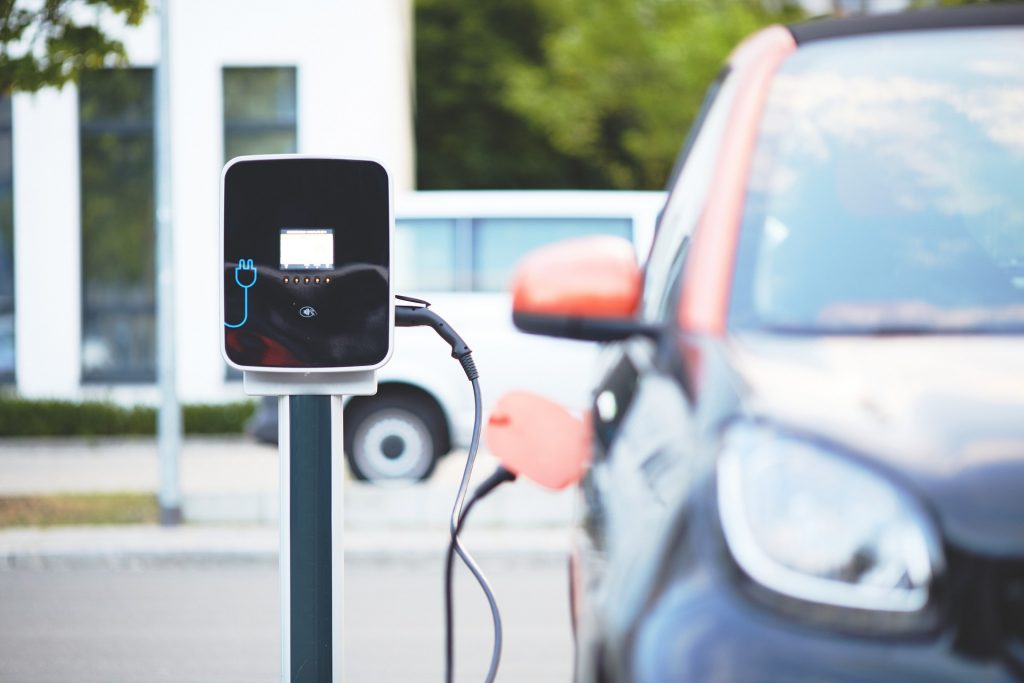By Brett Davis
(The Center Square) – State officials on Wednesday touted the planned decarbonization of transportation in Washington via the transition from gas-powered automobiles to electric vehicles that is part of a plan to fight climate change.
Officials spoke during a “Results Washington” public performance review, an initiative of Gov. Jay Inslee, who was on hand for the event, to make state government more effective.
Last year, Inslee said Washington state will follow California’s lead and ban the sale of new gas-powered motor vehicles in the state by 2035. Standards adopted by the Department of Ecology require automobile manufacturers to sell an increasing percentage of electric and other zero-emissions vehicles based on overall sales until reaching 100% by 2035.
Lawmakers set a goal of phasing out sales of new internal combustion-powered vehicles by 2030 as part of the 16-year, nearly $17 billion “Move Ahead Washington” transportation package that passed the Legislature during last year’s session.
In 2020, Washington lawmakers passed and Inslee signed it into law Senate Bill 5811 directing the state Department of Ecology to adopt California’s emissions standards as they’re rolled out.
“And we think that focusing on the electrification of vehicles for the next 10 to 12 years is really the best strategy to make early progress,” Michael Furze, assistant director of the Energy Division at the state Department of Commerce, said during the meeting. “Right now, of the 40 million metric tons of CO2 of the equivalence produced by Washington in 2019, 40% comes from passenger cars and light trucks, another 18% from heavy trucks. There’s a rich environment to do this work.”
That work is being done, according to Tonia Buell, alternative fuels program manager with the state Department of Transportation.
She made a reference to Washington’s cheap electricity costs that are partly the result of hydroelectric power.
“We have some of the lowest-cost electricity in the nation and some of the cleanest electricity, so this makes Washington an excellent place to be driving electric,” Buell said. “It’s also good for our residents. They can save money at the gas pump and have more mobility choices.”
Going electric means constructing more of the charging stations that will be required to power vehicles that don’t run on gas.
“We need a lot more vehicle charging everywhere: in homes, in public places, along our roadways, work sites,” Buell explained. “And so that’s one of the things that we’re all working on – is getting more infrastructure out there.”
Electric vehicles are in the process of becoming mainstream, she assured.
“And although electric vehicles are reaching cost parity with gas cars within the next 10 years, they’re still more expensive up front, so finding ways to bring down the cost,” Buell said, mentioning the state sales tax exemption on purchasing new and used electric vehicles.
She went on to say, “And we are seeing more makes and models of electric vehicles coming on our roads. There are now 86 different makes and models of electric vehicles and more announced that are coming.”
Buell pointed to the increasing numbers of electric vehicles in the Evergreen State to buttress her point.
She reminded the governor that during his first term in 2013 he set a “Results Washington” goal of getting to 50,000 electric vehicles in the state by 2020. In 2013, there were 8,000 electric vehicles in Washington and six in the state’s fleet.
“I am pleased to announce we met and exceeded that goal,” Buell said to a round of enthusiastic applause.
“We now have 124,716 plug-in electric vehicles as of the end of last month, so we’re making progress,” Buell said. “We expect the transition to start really taking off now.”
Electric vehicles – more than 60,000 – are concentrated in King County at the moment, she said, but she expects that to change over time.
“We’re starting to see electric vehicles spread throughout the state,” Buell said. “Right now about half are in King County, but we’re seeing growth in all the counties statewide.”
Inslee said the transition to electric vehicles is having some unexpected benefits, recalling last year’s visit to Norway where he got to see that nation’s nearly smokeless and silent electric ferries.
“And so I think there’s a value of this transformation besides saving carbon in the atmosphere,” he said. “It’s saving our mental health as well.”
More work remains to be done, Inslee noted.
“And we’re going to keep this revolution going,” he said.
Whether the road to mass adoption of electric vehicles in Washington turns out to be as smooth as state officials hope remains to be seen.
In November, a meeting of the Legislature’s Joint Transportation Committee on getting people to switch from gas-powered cars to electric vehicles ran into opposition from some lawmakers who said electric vehicles aren’t ready for prime time.
A little more than a year ago, Baruch Feigenbaum, senior managing director of transportation police at the free market Reason Foundation, told The Center Square that a statewide transition from fossil fuel-powered automobiles to electric vehicles in a decade or so is not realistic.
Brett Davis reports on Washington state government for The Center Square. He previously worked for public policy organizations the Freedom Foundation and Washington Farm Bureau, as well as various community newspapers.
Originally published by The Center Square. Republished with permission.
To read more about EV mandates, click here.
To read about the impact of electric vehicles on the environment, click here.
